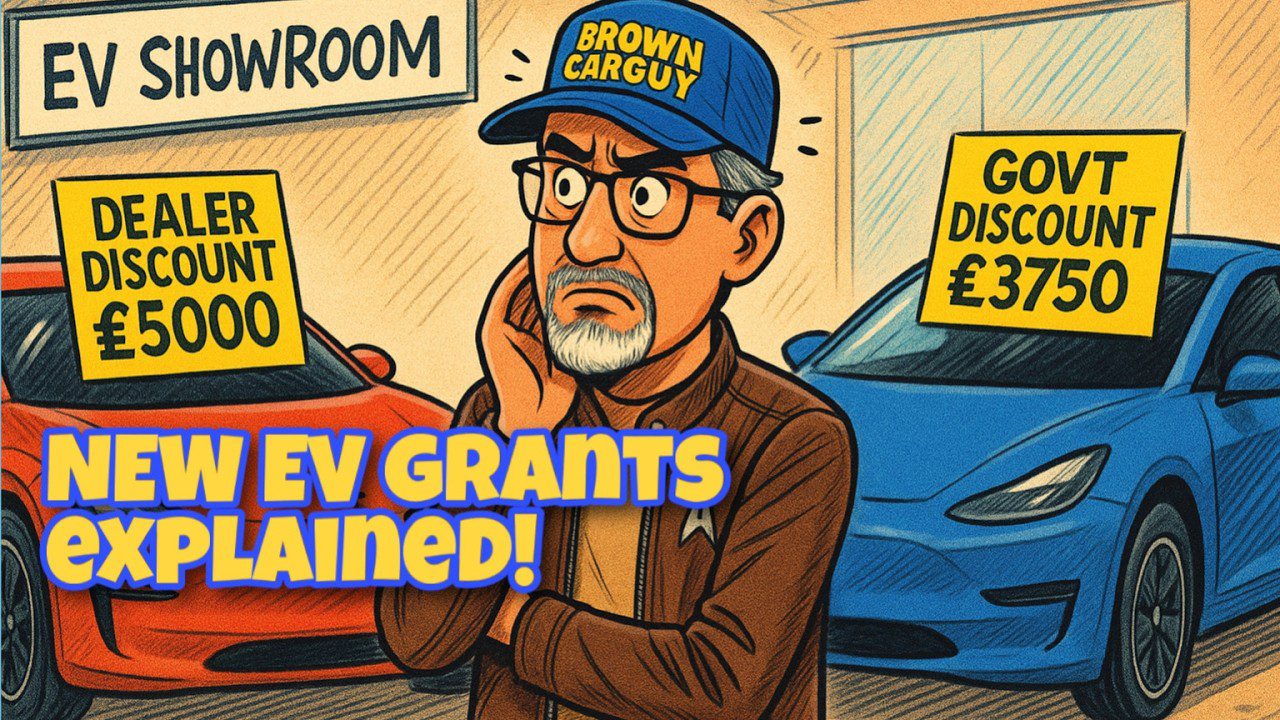New EV Subsidy Grants EXPLAINED! £1,500–£3,750 Off – Don’t Buy an Electric Car Until You Watch This!
If you’re considering making the leap to an electric vehicle (EV) this year, hold on just a moment! Let’s unpack this hot topic in the automotive world: EV subsidies for 2025. With the UK government rolling out new incentives ranging from £1,500 to £3,750, now might just be the perfect time to rethink your car purchase. But is the grass really greener on the electric side? Let’s dive into the nuances of these EV subsidies and the implications for potential buyers.
What Are EV Subsidies and Why Do They Matter?
Government-backed EV subsidies are financial incentives designed to encourage consumers to swap their petrol or diesel cars for cleaner, greener alternatives. The aim is to reduce greenhouse gas emissions, promote greener transport, and support the government’s commitment to achieving net-zero carbon emissions by 2050.
For the savvy buyer, these grants can substantially lower the upfront cost. But don’t let the allure of a shiny new EV cloud your judgment; understanding how these subsidies work is key to making a wise purchase.
Breaking Down the Numbers: What Can You Get?
The new grants available for 2025 range between £1,500 and £3,750, depending on the vehicle’s specifications and how energy-efficient it truly is. Here’s a quick guide:
-
£1,500 Off: Typically applies to standard models that, while energy-efficient, may not meet higher performance standards.
-
£2,500 Off: This is a sweet spot for mid-range electric vehicles that excel in low emissions and budget-friendly operation.
- £3,750 Off: Reserved for top-tier models, often with extended range and advanced features. These vehicles are usually your Teslas or high-capacity models like the Ford Mustang Mach-E.
Real-World Examples: Will You Really Save?
Imagine you’re eyeing a stunning Tesla Model 3. With a starting price around £43,000, the maximum subsidy could trim your cost to £39,250. Not bad, right? But consider also the running costs. Teslas come with impressive range and minimal maintenance, adding value in the long run.
Now, let’s compare this to a more affordable option, like the Vauxhall Corsa-e, priced around £30,000. With a potential £2,500 subsidy, your cost drops to £27,500. The Corsa-e still offers a solid range for city driving and might be more appealing if you don’t often venture far from home.
Pros and Cons: The Electric Car Dilemma
Pros:
-
Lower Running Costs: EVs typically cost much less to maintain than traditional vehicles. With fewer moving parts, you spend less on repairs and servicing.
-
Environmental Impact: Each electric vehicle depletes fewer fossil fuels, which is a win for the planet and your conscience.
- Incentives: Besides the grant, numerous local authorities offer additional incentives like free charging points or exempting you from congestion charges.
Cons:
-
Upfront Costs: Despite the subsidies, EVs can still be pricier than their combustion-engine counterparts, often requiring a larger initial investment.
-
Range Anxiety: Many people hesitate to switch due to concerns about battery life and the availability of charging stations, especially on long journeys.
- Charging Infrastructure: While the network is expanding, you might still face challenges finding charging points in less populated areas.
Buyer Advice: Timing is Everything
Don’t rush into an electric car purchase just because the government waved a subsidy in front of you. Consider a few steps:
-
Research Your Options: With so many EV models available, take your time comparing not just the initial costs, but also the long-term benefits and drawbacks of each.
-
Account for Daily Needs: Think about your driving habits. If most of your journeys are short, a lower-end model might suit you perfectly, allowing you to take full advantage of the grants.
- Stay Updated: Policies can change quickly. It’s vital to stay tuned to any developments regarding EV subsidies. Websites like the UK government’s portal offer real-time information.
Conclusion: The Road Ahead
As we hurtle into an increasingly electrified future, EV subsidies for 2025 present a unique opportunity for potential buyers. The £1,500 to £3,750 savings can make a significant difference, but they shouldn’t be the sole factor in your decision. With the right balance of information and reflection, you can confidently steer your way into owning a greener vehicle.
So, before you whip out that bank card and make a purchase, take a moment to understand how these grants work. Dive deep into the specifications of the vehicles you’re considering, and remember that the best choice is one that fits seamlessly into your lifestyle while being kind to the planet. Happy car hunting!

Utsav is an automobile enthusiast and auto news writer with 2+ years of experience in the Indian car industry. He has covered major launches, done detailed car reviews, and follows trends in the EV segment.


